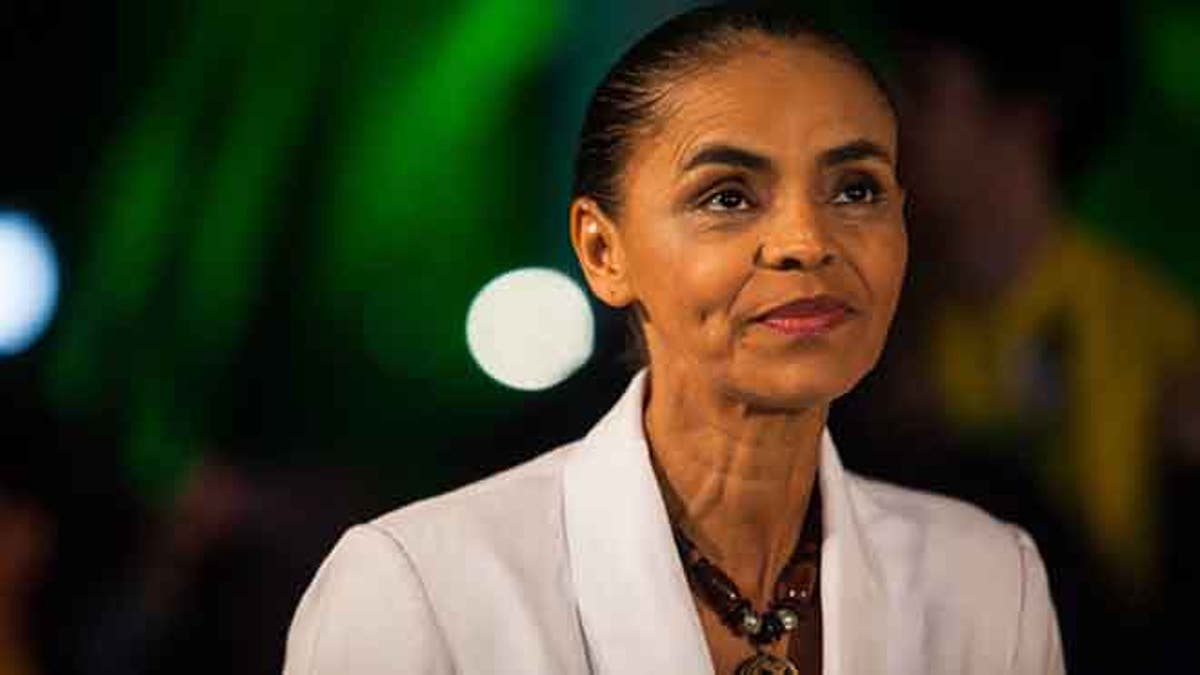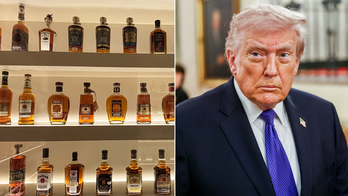
Marina Silva during a press conference at the Brazilian Socialist Party on October 5, 2014 in Sao Paulo, Brazil. (2014 Getty Images)
New York – Former presidential candidate of Brazil Marina Silva said these days her country is living in “profound chaos,” which could have been averted because the signals of the impending crisis were evident long before.
“We treat problems that have been growing over the long term as if they're new,” Silva told Fox News Latino in New York City, where last week she got a Lifetime Achievement Award by the Rainforest Alliance. The former environmental minister, a Socialist, said Brazil is “in a moment in which we need to seriously examine what can be done to confront the crises.”
“[We need to] resolve them for the benefit of everyone by making strategic decisions that reach into every sector,” she added.
Silva has run for president twice — the second time only last year, after the sudden death of candidate Eduardo Campos, who had chosen her as VP running mate.
One of 11 children born and raised in a remote village in the northern state of Acre, Silva was illiterate until age 16, when she became an orphan and moved to the state capital, Rio Branco.
- 150 years after end of the Civil War, the south rises again…in Brazil
- State Dept. official, President Maduro meet to discuss improving U.S.-Venezuela relations
- That stinks! Shower-loving Brazilians hit hard by historic drought
- The night they drove old Dixie down…to a town in Brazil
- After snubbing White House over NSA spying, embattled Brazilian president will meet with Obama in June
- Something fishy going on at Rio de Janeiro’s Olympic Bay
- Chinese premier kicks off South America investment tour with stop in Brazil
- Former Brazilian President Cardoso will defend jailed Venezuelan opposition leaders
- U.S. regains clout in Latin America after economy and dollar grow stronger
- Best pix of the week
She went on to graduate from the Federal University of Acre and by 1994 she had entered politics as a state senator.
Speaking to Fox News Latino before receiving her award, Silva, 57, said the Petrobras crisis would not have reached this point “had the signs been heeded earlier.”
“Unfortunately, denial of reality had the greatest impact of the people who are most vulnerable and who have already made the most sacrifices: the workers,” she said.
Despite the corruption scandals and the stagnant economy, Silva expressed optimism because of what she describes as a new political consciousness emerging in society at large.
“A growing number of people who once only saw themselves as political spectators now see themselves as part of the political process,” she said. “It's for that reason that we've seen more diverse people running for office. It's for that reason that we see more people agitating for change, and why, since 2013, we've been seeing much larger collective movements and actions,” she said.
Brazil's economy is stagnant and may contract 0.7 percent this year, according to the latest forecasts. Inflation rose to 7.7 percent last year, its highest level in a decade, and unemployment also has begun to grow in recent months.
As for whether the two-time presidential candidate might pursue that office again, Silva denies having made a decision about that. “I don't have an answer for you yet,” she said.
“Right now I'm focused on discerning how I can best contribute to my country's future, whether my place is more useful in society or in politics. One of my concerns is that in electoral politics, I'm sad to say, it's easy to lose sight of what the country really needs.”












































